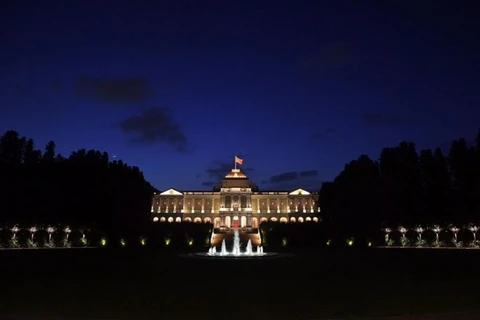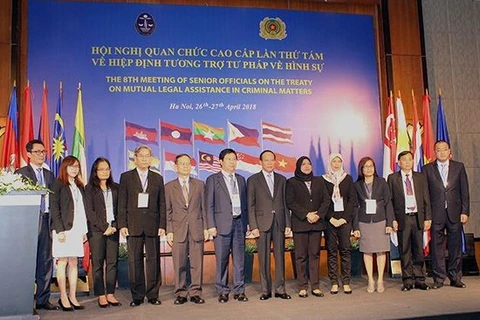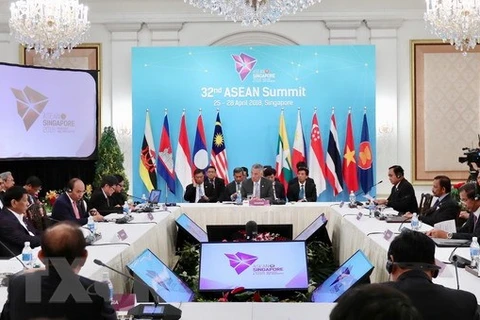Hanoi (VNA) - The economy of the ASEAN+3 region is projected to grow 5.4 percent in 2018, underpinned by resilient domestic demand and export growth with stable inflation, said a new report released on May 3 by the ASEAN+3 Macroeconomic Research Office (AMRO).
The ASEAN+3 comprises the ten member countries of the Association of Southeast Asian Nations (ASEAN), and China, Japan and the Republic of Korea (RoK). ASEAN groups Brunei, Cambodia, Indonesia, Laos, Malaysia, Myanmar, the Philippines, Singapore, Thailand and Vietnam.
The report, titled “ASEAN+3 Regional Economic Outlook (AREO) 2018,” predicts a robust growth this year in China and Japan, the region's two largest economies.
With improving external demand, growth in the region is expected to be sustained at 5.4 percent for 2018 and 5.2 percent for 2019, according to the report.
However, the report warned the region to remain vigilant given the significant external risks in the near term of trade protectionism and a faster-than-expected tightening in global financial conditions.
In the longer term, it said structural trends in regional production and trade networks and technology are prompting policymakers in the region to relook at appropriate policies to secure growth and development in future.
Despite resilient domestic demand and stronger external demand for exports, the report says the region is facing two near-term risks: faster-than-expected tightening in global financial conditions and an escalation of global trade tensions.
If these risks materialise, there would be spillovers to the region through capital outflows, higher borrowing costs, and lower trade and investment flows, the report said.
The report said improving external demand has allowed the region to build up buffers further against potential external shocks.
Regional exchange rates have become more flexible in recent years, and have played a greater role as a shock absorber, the report said.
To enhance resilience, the report said policymakers in the region should continue to build policy space, particularly in monetary policy, in anticipation of tighter global financial conditions ahead.
Fiscal policy may have to play a greater role in supporting growth while macroprudential policy can help safeguard financial stability, the report said.
The AREO 2018 also contains a thematic study on how the region can maintain its resilience and growth in view of fundamental and global changes in technology and in trade and production networks.
Technology has proven to be a double-edged sword as manufacturing is becoming more capital and skills intensive and will no longer employ as much labour as in the past, according to the report said.
To address these challenges, the report said the region as a whole should strengthen intra-regional connectivity and individual economies should build resilience through developing multiple engines of growth, said the report./.
VNA
























